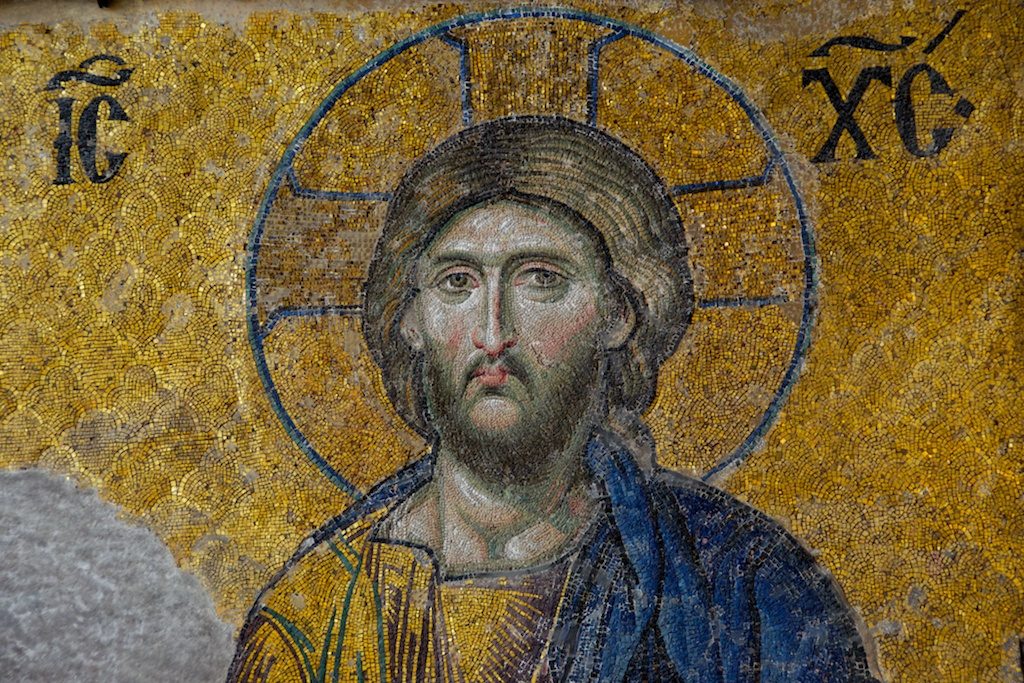
by Bill Carroll
Today, we begin a new year in Christ, with all the new possibilities that entails. Just off stage, the Virgin waits for the angel and the promise of a child. So too, the prophets wait (all Israel waits) for the long-expected Savior. We are waiting for the righteous branch—for the root of Jesse and royal Son of David.
With these mothers and fathers, we begin by asking for grace. We ask God for the gift of new life. We ask God to prepare us to receive a child.
We live, as Thomas Merton has written, in “the time of no room.” We have no room to rest. No room for each other. No room for God. And so we ask God to make some room in our flesh. We ask God to help us overcome everything within us that divides us from God and each other—yes, even from our own true selves.
At the end, we will know the Great Joy of Emmanuel—God-with-us in the flesh. But we begin the season with a heartfelt cry of absence—longing for the hidden God—burning with desire for the promised Savior.
From the beginning of the Advent season, we are summoned to the work of preparation and self-examination. Like Lent, Advent is a dry, desert season, when God calls us to watch and pray. Advent is a quiet season of waiting, in a time of no room. And, like Lent, it has a penitential flavor. But unlike Lent, in Advent the accent is on hope and joy—on learning to trust God’s promises. Lent has these themes too, but they recede more easily into the background. Advent is the season of heart-pounding expectation—the dry air crackling with electricity as the Mighty One draws near to save. As water appears in dry places and the desert breaks out in bloom.
We begin the year with a note of judgment, and a stark reminder of our sin. The Gospel promises the Son of Man coming on a cloud with power and great glory. We ALL must stand before him to be judged.
But note this—note especially this—the Lord promises, even in the midst of catastrophe and loss, that our redemption is near. Truly, the Lord Jesus is near. He is always near and close at hand. He is closer to us than we are to ourselves. Even now, he stands at the gate and knocks.
Talk of judgment makes many of us uncomfortable. But I respect the way in which the Church year and the lessons appointed for Advent bring the first and second comings of Christ together. We live between the first, humble Advent of Jesus and his second, glorious Advent to judge the living and the dead. But—here’s the hard part–BOTH are Good News. Too often we imagine a division in God between mercy and judgment. As if God knew internal conflict. As if God’s nature were divided. When the truth is that God is utterly simple—pure goodness, absolute love.
We need the Good News of the humble Child in the Manger, because we have learned to fear and hide our face from God–and turn our backs on each other.
We need the Good News of his return to judge us, because we are still in love with the things that are killing us. Sins of lust. Sins of greed. Sins of anger, resentment, and violence. Sins of self-loathing and the desecration of God’s image in one another.
God’s judgment is no different from God’s mercy or love. Our fantasies about cruel and vindictive punishment are more about us than they are about God. God’s judgment is simply what God’s love looks like when we are lost in sin and self-destructive behavior.
Above all, judgment is face to face confrontation with the truth. The truth about God. The truth about ourselves. And the truth about the consequences of our actions. When we stand before the great judgment seat of Christ, we come to see ourselves for who we really are.
It is indeed painful to have our false self-image stripped away. To be left without defenses or excuses. It would be unbearable—really—were it not for the truth and clear light of the Gospel. That God, who is pure goodness without remainder, loves each and every one of us—completely.
For, unlike the many people who pretend to judge us in this world, Jesus comes not to harm but to heal. He comes not to condemn–but to forgive. Not to shame or control us–but to SET US FREE. Jesus comes, as Paul says in today’s epistle, to make us increase and abound in love for one another. He comes to strengthen our hearts in holiness that we may stand blameless before God.
And so we pray: Come, Lord Jesus.
Come, Lord Jesus. Come.
The Rev. Canon Bill Carroll serves as Canon for Clergy Transitions and Congregational Life in the Diocese of Oklahoma. He has served as a parish priest in Oklahoma, as a parish priest and college chaplain in Southern Ohio, and as a member of a seminary faculty. In 2005, he earned his Ph.D. in Christian theology from the University of Chicago Divinity School.

